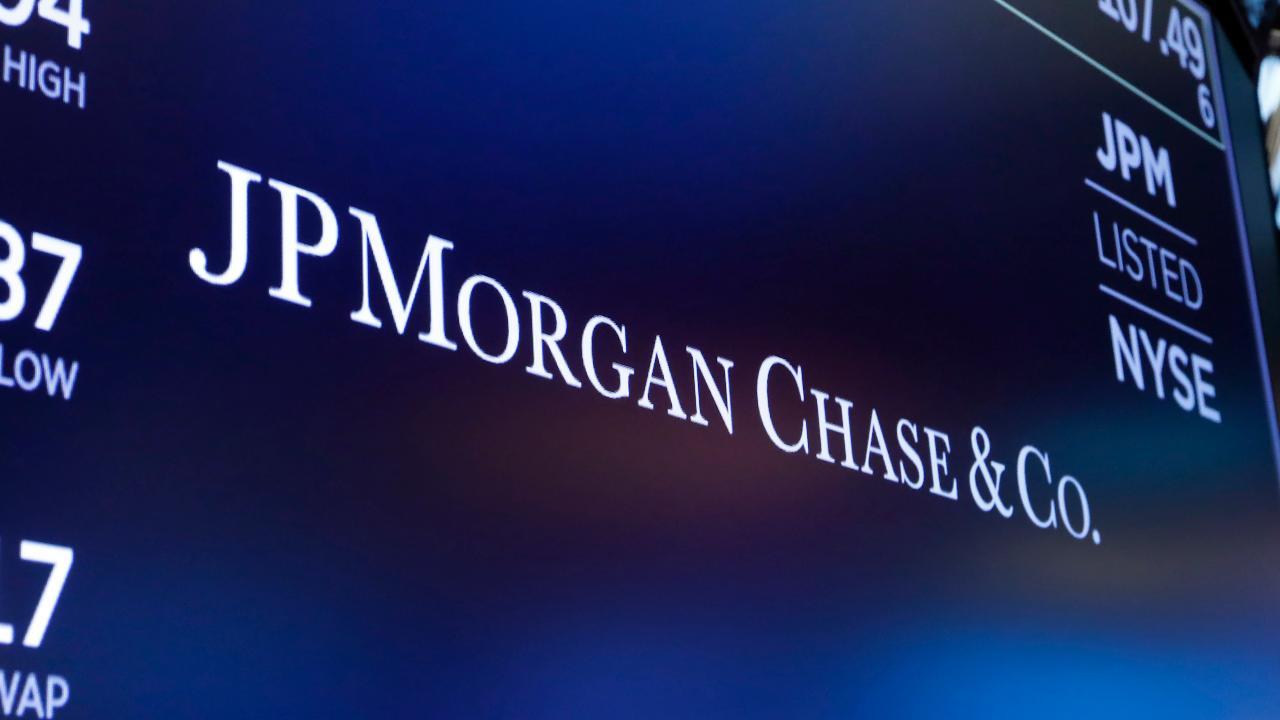Recession threat forces JPMorgan's $6.8B increase in loan reserves
'The first quarter delivered some unprecedented challenges'
Get all the latest news on coronavirus and more delivered daily to your inbox. Sign up here.
The likelihood of a "fairly severe recession" forced JPMorgan Chase, the largest U.S. lender, to boost reserves against delinquent loans by $6.8 billion as the coronavirus pandemic shut down broad swaths of the U.S. economy.
“The first quarter delivered some unprecedented challenges and required us to focus on what we as a bank could do -- outside of our ordinary course of business -- to remain strong, resilient and well-positioned to support all of our stakeholders," CEO Jamie Dimon said in a statement.
The buildout in credit reserves helped drag profits from January through March down by 69 percent to $2.87 billion or 78 cents a share, JPMorgan said.
"The banks are hunkering down," Kenneth Leon, an analyst with CFRA Research, told FOX Business' Maria Bartiromo. "The question is what is the ability of most borrowers to meet their monthly payments."
GET FOX BUSINESS ON THE GO BY CLICKING HERE
JPMorgan, which has long touted a "fortress balance sheet," entered the crisis well-capitalized and has total liquidity resources of more than $1 trillion, Dimon said. Typically among the first of the largest U.S. lenders to report quarterly earnings, JPMorgan is often viewed as an early indicator of Wall Street's performance.
It was among the standouts of the 2008 financial crisis, working with the government to acquire the beleaguered investment bank Bear Stearns and, later, the floundering consumer lender WaMu.
The bank "has built its reputation on being there for clients, customers and communities in the most critical times," Dimon said. "This unprecedented environment is no different. We will do everything in our power to help the world recover from this global crisis."
The disease, identified in China in December and dubbed COVID-19, has since spread worldwide, infecting more than 1.9 million people, according to Johns Hopkins University & Medicine, and killing 121,000. The apparently-easy transmission has prompted governments to close all but essential businesses such as grocery stores and banks.
JPMorgan's community banking division, its largest, has kept about 75 percent of its 5,000 branches open, with heightened safety procedures to protect customers and employees from infection with the virus, Dimon said.
Income in the unit fell 95 percent as tumbling interest rates, intended to curb the pandemic's fallout, tightened the gap between what the lender was paying depositors and what it was able to charge borrowers, particularly on adjustable-rate loans.
In its trading business, however, JPMorgan benefited from pandemic-induced volatility as investors fled equities for safer stores of value such as U.S. government bonds. The Dow Jones plummeted from highs near 30,000 to below 20,000 in March before recouping some of its losses.
JPMORGAN TO RAISE LENDING STANDARDS AS CORONAVIRUS CLOUDS ECONOMIC OUTLOOK
Revenue on the bank's bond-trading desk surged 34 percent to $4.99 billion, while stock trading expanded 28 percent to $2.24 billion.
The bad economy has very adverse consequences way beyond just the economy, in terms of mental health, domestic abuse, substance abuse ...
The unit was performing well during the quarter even before the pandemic slammed into markets, but the spike in volatility boosted trading volumes significantly, Chief Financial Officer Jennifer Piepszak told reporters.
Still, "it's too early to project this performance going forward," she noted. "In fact, low rates and low economic activity may even be a headwind."
JPMORGAN CHIEF JAMIE DIMON RETURNS TO WORK AFTER SURGERY
Dimon, who recently returned to work after heart surgery, told investors on a subsequent earnings call that he's not expecting the economy to return to business as usual in May but anticipates rolling regional reopenings through the summer.
"Hopefully, you can turn it back on where it's very safe, there's plenty of capacity and you're not worried that you can't give every American who does get sick the best possible medical care," he said. "In some ways, you need to get that done because the bad economy has very adverse consequences way beyond just the economy, in terms of mental health, domestic abuse, substance abuse, etc."




















